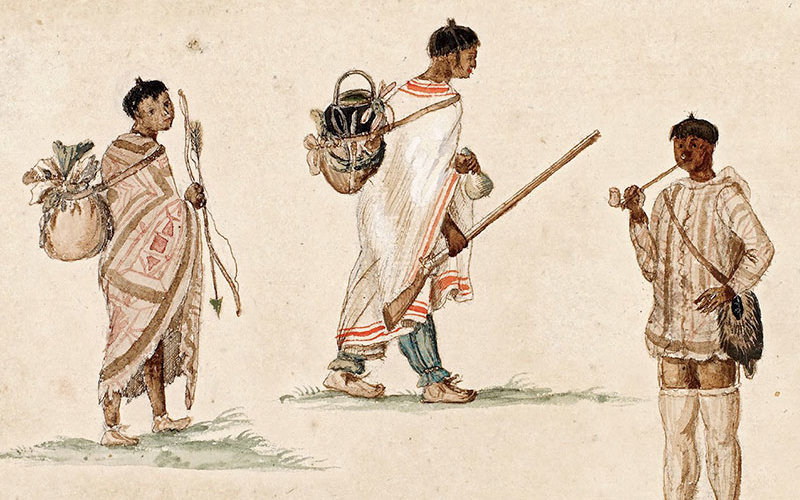
Skeptical of historical literature’s portrayal of Native Americans as gift-givers who did not understand commodity exchange, Jessica Stern, associate professor of history, began digging deeper into decades of study by anthropologists.
Carefully, she examined archival evidence of instances of trade and gift-giving between Native Americans and the British — beaver skins for a gun, for example — and drew scholarly conclusions.
“I saw that all groups used a range of exchange methods, but that the specific method they chose at a particular time could have social and political consequences,” says the first-time author.
Then she rewrote the book.
“The Lives in Objects: Native Americans, British Colonists, and Cultures of Labor and Exchange in the Southeast” was published by University of North Carolina Press and released in February. Stern explains her research below.
What is the subject of your book?
Trading and gift giving between Native Americans — primarily Cherokee and Creek — and British settlers — in South Carolina and Georgia — in the 18th century.
Why do you think it’s important for people to understand this subject?
Depicting one group as ‘primitive’ and another group as ‘advanced’ skews our understanding of the past, suggesting that it was inevitable that the ‘advanced’ civilization would prevail. This was not the case at all in early America. But there are also contemporary effects of erroneously believing that Native Americans only understood gift exchange. Seeing Native Americans as economically backwards can lead to the government and individuals claiming their land and resources because they are seen as impediments to economic progress.
What new or surprising information did you discover during your research?
There was a social status dimension to the dynamics of exchange that I was not expecting to see. It was the political elite of all groups, Native and British, who wanted to restrict the types of exchanges that could take place. The common people, on the other hand, were much more comfortable with creating a range of economic relationships.
What related or current research projects are you working on next/now?
I am working on an intellectual biography of Roger Williams (1603-1683), most famous for founding the colony of Rhode Island and arguing for religious toleration. I want to focus on the understudied dimensions of his intellectual development: his interest in economics, anatomy, ethnography and world history. Central to all these developments, I believe, was what he learned in his interactions with New England native groups.